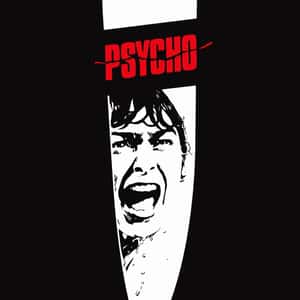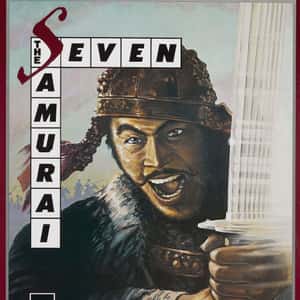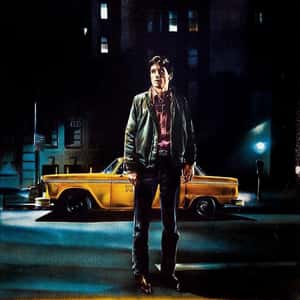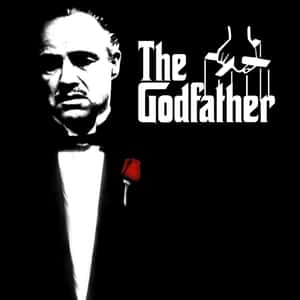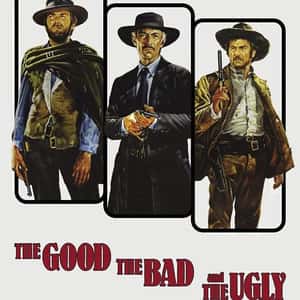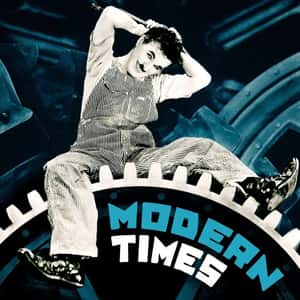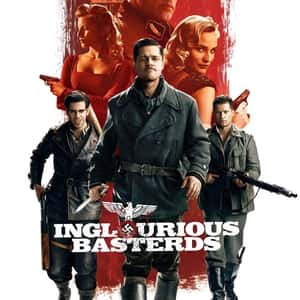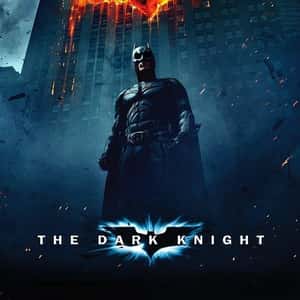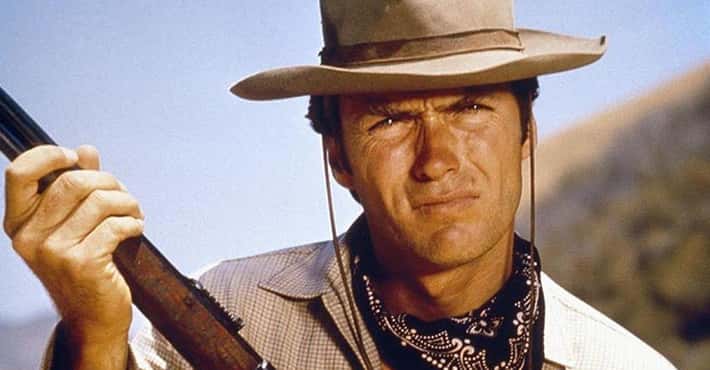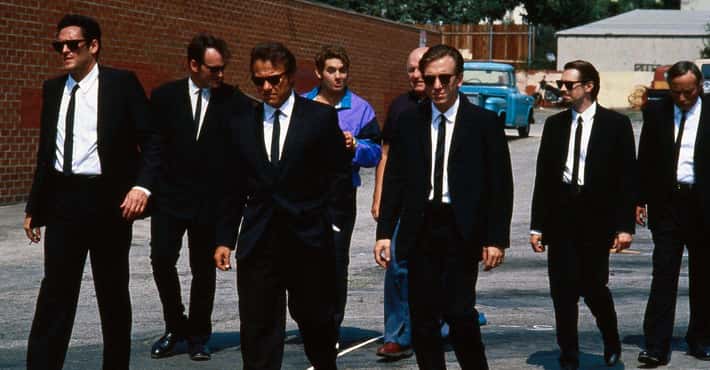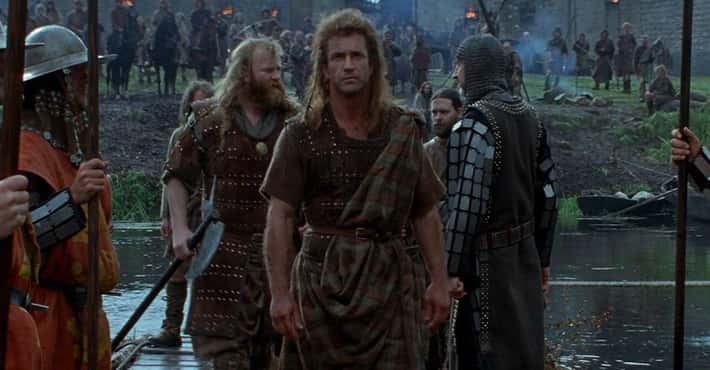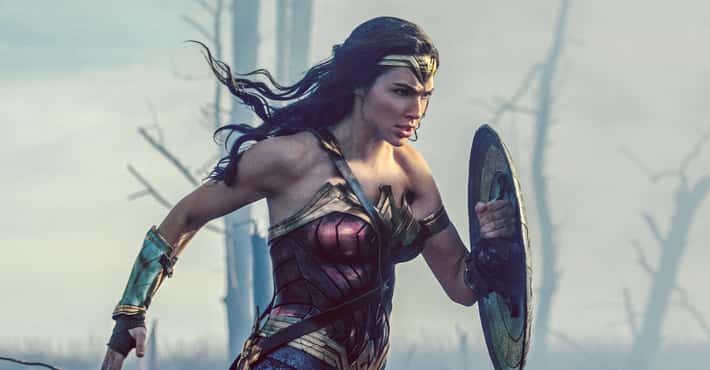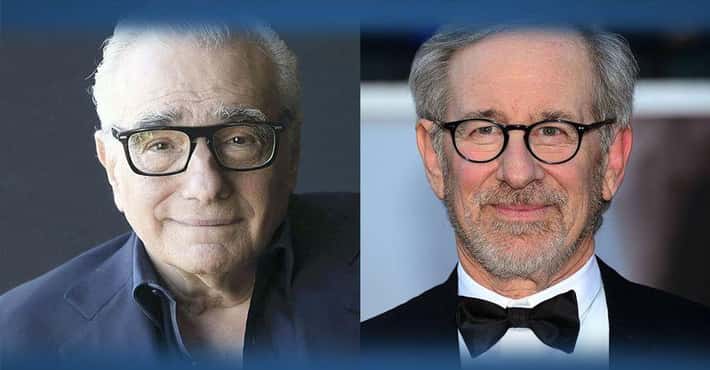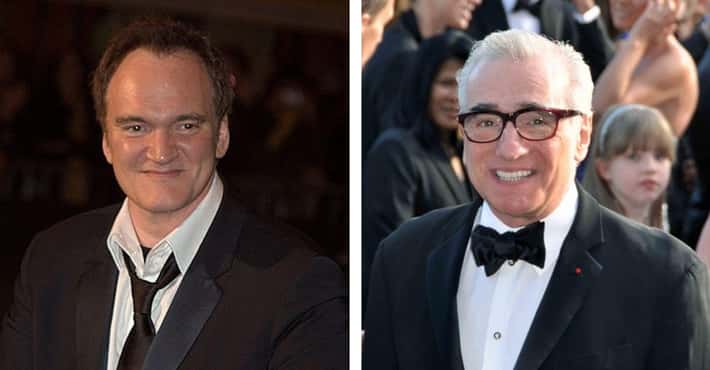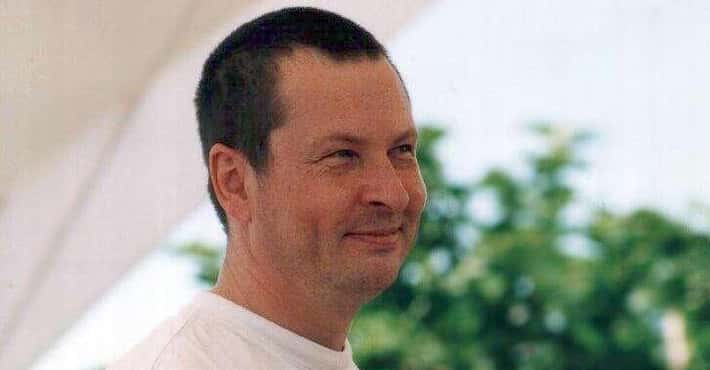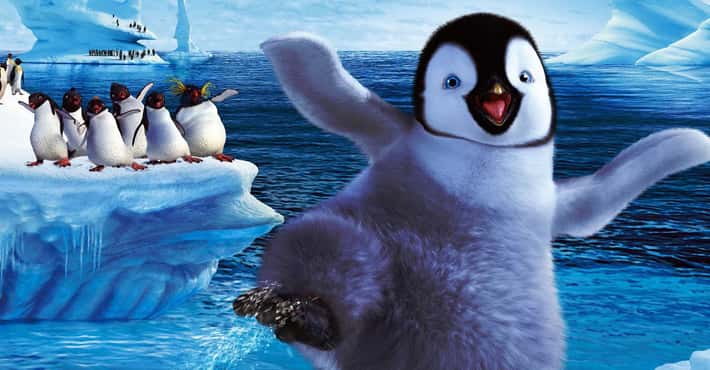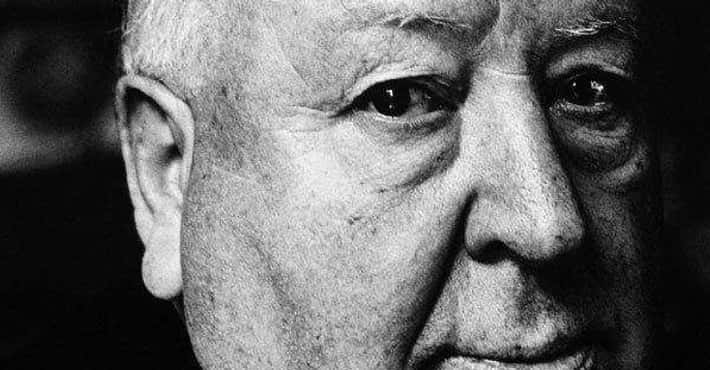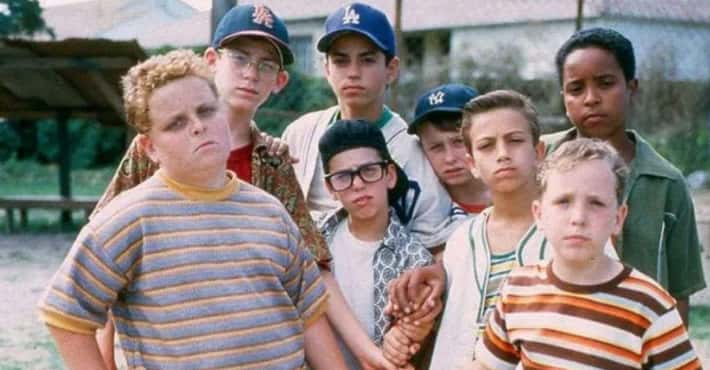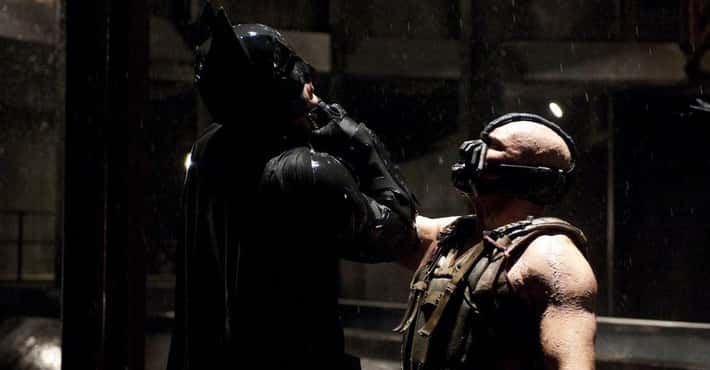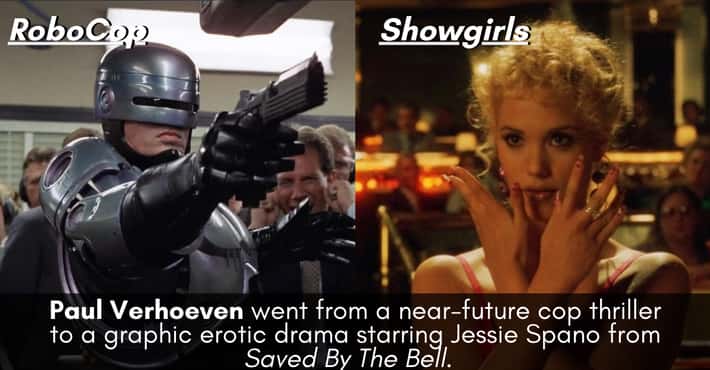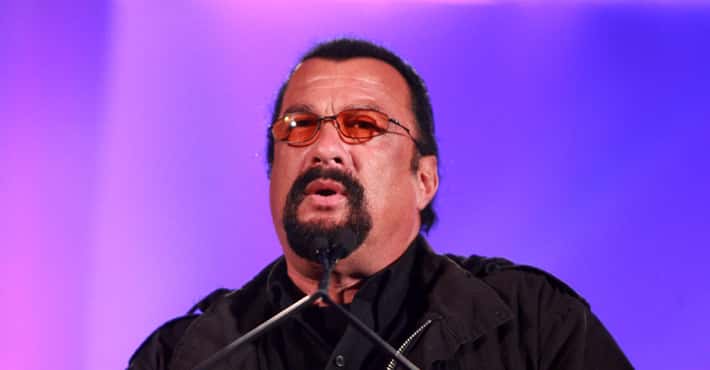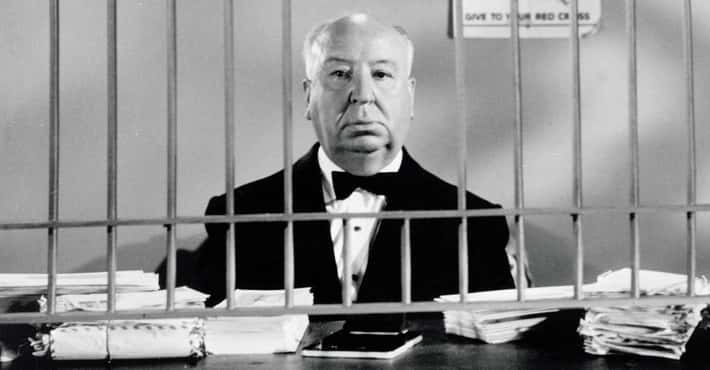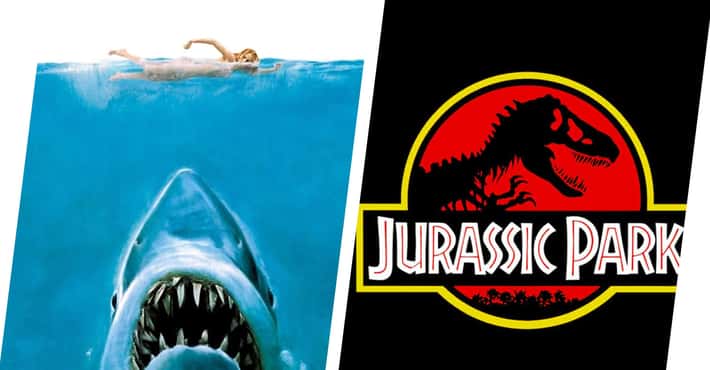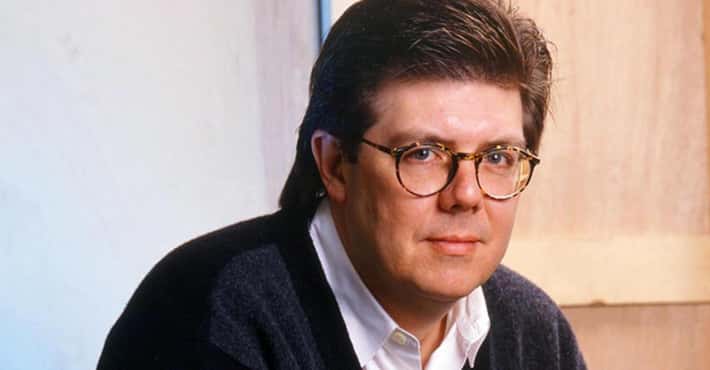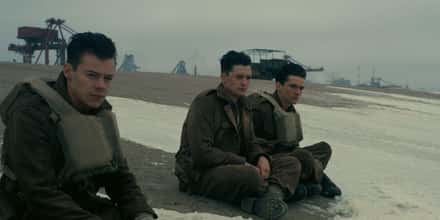The Greatest Auteurs in Film History
- New York City, Manhattan, USA
Visionary director Stanley Kubrick is best known for his masterful storytelling and unique visual style. His career spanned various genres, from the satirical Dr. Strangelove to the science fiction classic 2001: A Space Odyssey. Kubrick's attention to detail and innovative techniques have firmly established him as one of the greatest auteurs in film history.
More Stanley Kubrick - Leytonstone, London, England
With a penchant for suspense and psychological thrills, Alfred Hitchcock skillfully crafted influential films such as Vertigo, Psycho, and Rear Window. Often referred to as the "Master of Suspense," Hitchcock's exceptional talent for narrative pacing and strong visual storytelling earned him widespread acclaim. His unmistakable style and iconic imagery continue to inspire generations of filmmakers.
More Alfred Hitchcock- Dig Deeper...The Scariest Alfred Hitchcock Movies
- And Deeper...320 Famous Leo Celebrities
- #124 of 559 onPeople We Wish Were Still Alive
- Shinagawa, Japan
Hailing from Japan, Akira Kurosawa's innovative filmmaking techniques and expert storytelling have left indelible marks on the world of cinema. Renowned for classics such as Seven Samurai, Rashomon, and Yojimbo, Kurosawa masterfully blended Eastern and Western storytelling traditions. With a career spanning over five decades, he remains a titan in both Japanese and international cinema.
More Akira Kurosawa- Dig Deeper...250+ Famous Aries Celebrities
- #420 of 559 onPeople We Wish Were Still Alive
- #10 of 324 onThe Greatest Directors In Movie History
- Kenosha, USA, Wisconsin
A powerhouse in the realm of theater, radio, and film, Orson Welles' magnum opus, Citizen Kane, is often considered one of the best movies ever made. Welles' deep understanding of storytelling and innovative use of camera angles set him apart from his contemporaries. Though his career was marked by adversity, Welles' undeniable talent cemented his status as an influential auteur.
More Orson Welles- Dig Deeper...The 1938 Fake News Story That Mobilized The Navy... In Fear Of Aliens
- And Deeper...335+ Famous Taurus Historical Figures
- #164 of 574 onThe Best Actors In Film History
- Rimini, Italy
A true master of Italian cinema, Federico Fellini's surreal visions and deeply personal stories brought forth unique and captivating films. La Dolce Vita, 8½, and Amarcord are just a few of his celebrated works that showcase Fellini's life-affirming approach to storytelling. His bold visual style and ability to explore complex themes earn Fellini a prominent place in cinematic history.
More Federico Fellini- #29 of 324 onThe Greatest Directors In Movie History
- #625 of 752 onThe Greatest Minds of All Time
- #1761 of 3,182 onThe Most Influential People Of All Time
- Missoula, Montana, USA
Known for his mind-bending visuals and dreamlike storytelling, American filmmaker David Lynch has cultivated an idiosyncratic style that has captivated audiences worldwide. Blue Velvet, Mulholland Drive, and the cult television series Twin Peaks exemplify Lynch's unique vision. His work often blurs the line between reality and fantasy, inviting viewers to fully immerse themselves in his avant-garde creations.
- Queens, New York, USA
A titan of American cinema, Martin Scorsese's illustrious career has spanned five decades, earning him numerous critical accolades and ardent fans. Iconic films such as Taxi Driver, Raging Bull, and Goodfellas are testaments to Scorsese's masterful direction and unparalleled storytelling prowess. While known for his riveting portrayals of crime and gritty urban life, Scorsese’s diverse filmography is a testament to his boundless creativity.
More Martin Scorsese- Dig Deeper...The Best Movies Directed By Martin Scorsese
- And Deeper...Martin Scorsese Crime Films That Are Filled With Blatant Homoeroticism
- #1 of 184 onThe Greatest Living Directors, Ranked
- Uppsala, Sweden
Hailing from Sweden, Ingmar Bergman remains one of the most influential auteurs in the world of cinema. His thought-provoking films such as The Seventh Seal, Wild Strawberries, and Persona delve deep into the human psyche with poetic finesse. Bergman's introspective explorations of existential themes and complex characters have secured his place as a true cinematic visionary.
More Ingmar Bergman- #518 of 559 onPeople We Wish Were Still Alive
- #17 of 324 onThe Greatest Directors In Movie History
- #613 of 752 onThe Greatest Minds of All Time
- Sucha Beskidzka, Poland
Billy Wilder's incomparable wit and keen observational skills set him apart within Hollywood's Golden Age. As the director and co-writer of classics like Sunset Boulevard, Some Like It Hot, and The Apartment, Wilder was no stranger to acclaim. With his distinct blend of sharp dialogue, multifaceted characters, and biting satire, Wilder achieved a rare balance between commercial success and artistic integrity.
More Billy Wilder- Dig Deeper...The Best Movies Directed by Billy Wilder
- #4 of 61 onWho Are The Best Jewish Film Directors Of All Time?
- #22 of 324 onThe Greatest Directors In Movie History
- Detroit, Michigan, USA
As the mastermind behind the epic Godfather trilogy and the visually stunning Apocalypse Now, Francis Ford Coppola's impact on Hollywood is undeniable. Bringing new depths to character-driven storytelling, Coppola expertly balances emotionally charged narratives with breathtaking visuals. His dedication to the craft and ability to create unforgettable cinematic experiences make him an auteur for the ages.
More Francis Ford Coppola- Dig Deeper...Actors in the Most Francis Ford Coppola Movies
- And Deeper...250+ Famous Aries Celebrities
- #5 of 184 onThe Greatest Living Directors, Ranked
- Rome, Italy
An architect of the Spaghetti Western genre, Italian director Sergio Leone revolutionized filmmaking with influential classics like The Good, the Bad and the Ugly and Once Upon a Time in the West. His stylistic trademarks, such as extreme close-ups and elongated tension-building sequences, have had a lasting impact on filmmakers around the globe. Leone's keen visual eye and adept storytelling skills secure his place among the great auteurs.
More Sergio Leone- #421 of 559 onPeople We Wish Were Still Alive
- #15 of 324 onThe Greatest Directors In Movie History
- #572 of 784 onThe Greatest Entertainers Of All Time
- Japan, Bunkyō
A master of the animated realm, Japanese director Hayao Miyazaki has consistently enchanted audiences with his vivid, imaginative worlds. Films such as Spirited Away, Princess Mononoke, and My Neighbor Totoro exemplify Miyazaki's unparalleled ability to weave enchanting stories that resonate with audiences of all ages. His visionary creations and profound love for nature have earned him a well-deserved place among the world's greatest auteurs.
More Hayao Miyazaki- Dig Deeper...Which Hayao Miyazaki Character Would You Be, According To Your Zodiac Sign?
- #1 of 225 onList of Famous Animation Directors
- #13 of 184 onThe Greatest Living Directors, Ranked
- 13
Fritz Lang
Vienna, AustriaA pioneer of German cinema, Fritz Lang's groundbreaking films such as Metropolis and M embody the Expressionist movement of the 1920s. His innovative techniques and gripping narratives earned him international acclaim. Despite fleeing Nazi Germany and working in the US for much of his career, Lang left an indelible mark on German cinema and beyond.
More Fritz Lang- #42 of 324 onThe Greatest Directors In Movie History
- #59 of 83 onThe 80+ Best Horror Directors In Film History
- #1327 of 3,182 onThe Most Influential People Of All Time
- England
The inimitable Charlie Chaplin, one of the founding fathers of modern cinema, captivated audiences worldwide with his iconic character, the Little Tramp. His unique blend of physical comedy, social commentary, and heartfelt sentimentality has left an indelible mark on film history. As an actor, director, and composer, Chaplin's talent knew no bounds, making him a true pioneer in the industry.
More Charlie Chaplin- Dig Deeper...18 Surprising and Revealing Facts About Charlie Chaplin
- And Deeper...The Best Movies Directed by Charlie Chaplin
- And Deeper...250+ Famous Aries Celebrities
- Yuryevetsky District
Russian filmmaker Andrei Tarkovsky's evocative, meditative films explore the depths of human existence. With revered works like Solaris, Stalker, and Mirror, Tarkovsky invites viewers to ponder questions of spirituality, memory, and identity. His profound influence on generations of filmmakers and unique visual language cement his status as a true luminary of cinema.
More Andrei Tarkovsky- #24 of 324 onThe Greatest Directors In Movie History
- #291 of 3,182 onThe Most Influential People Of All Time
- #21 of 87 onThe Greatest Directors Of The 1970s
- Calanda, Spain, Spain
Daring and unapologetically provocative, Spanish filmmaker Luis Buñuel challenged societal norms with his subversive, surrealist films. Works like The Discreet Charm of the Bourgeoisie, Belle de Jour, and The Exterminating Angel showcase Buñuel's unmatched talent for blending fantasy and reality in captivating ways. A true trailblazer in European cinema, Buñuel's originality and inventive spirit have solidified his legacy in filmmaking.
- France, Paris
Leading the French New Wave movement, François Truffaut left an indelible mark on cinematic history with groundbreaking films like The 400 Blows, Jules and Jim, and Day for Night. A passionate advocate for the auteur theory, Truffaut's films are characterized by their innovative storytelling, emotional depth, and trenchant observations of humanity. His work remains an inspiration for filmmakers worldwide.
More François Truffaut- #43 of 324 onThe Greatest Directors In Movie History
- #40 of 87 onThe Greatest Directors Of The 1970s
- #266 of 1,376 onEvery Person Who Has Been Immortalized in a Google Doodle
- St. Louis Park, USA, Minnesota
One-half of the famed Coen Brothers duo, Joel Coen (alongside his brother Ethan) has consistently reinvented the cinematic landscape with an eclectic array of films. From Fargo, No Country for Old Men to The Big Lebowski, the Coens' unique blend of dark humor, intricate storytelling, and unforgettable visuals have earned them accolades and widespread admiration. Their innovative approach to filmmaking has cemented the Coens as revered auteurs.
More Joel Coen- Dig Deeper...The 20 Actors In The Most Coen Brothers Movies
- #8 of 61 onWho Are The Best Jewish Film Directors Of All Time?
- #8 of 184 onThe Greatest Living Directors, Ranked
- Nevada, USA, Missouri
An influential figure in the Golden Age of Hollywood, John Huston crafted unforgettable films such as The Maltese Falcon, The Treasure of the Sierra Madre, and The African Queen. With his keen understanding of storytelling and richly drawn characters, Huston's career spanned multiple decades and genres. His enduring impact on filmmaking has solidified his status as a venerated auteur.
More John Huston- #37 of 324 onThe Greatest Directors In Movie History
- #214 of 233 onActors You Would Watch Read the Phone Book
- #17 of 76 onThe Greatest Hollywood Screenwriters Of All Time, Ranked
- France, Paris
A key figure in French New Wave cinema, Jean-Luc Godard's avant-garde sensibilities and experimental approach to filmmaking have left an indelible mark on the industry. With groundbreaking films like Breathless and Pierrot le Fou, Godard redefined what cinema could be, boldly challenging traditional narrative structures. His provocative and enduring work has earned him legendary status among cinephiles and filmmakers alike.
More Jean-Luc Godard- Dig Deeper...195+ Famous Sagittarius Celebrities
- #55 of 324 onThe Greatest Directors In Movie History
- #1339 of 3,182 onThe Most Influential People Of All Time
- Croydon, England, London
Known for his grand, sweeping epics that transport viewers to other worlds, English director David Lean is a legend in the world of film. His stunning achievements like Lawrence of Arabia, Doctor Zhivago, and The Bridge on the River Kwai showcase his incredible ability to combine breathtaking visuals with gripping narratives. Lean's films continue to endure as some of the most iconic works in cinematic history.
More David Lean- Dig Deeper...The Best Movies Directed by David Lean
- #146 of 219 onThe Greatest British Actors of All Time
- #40 of 324 onThe Greatest Directors In Movie History
- Munich, Germany
A fearless iconoclast of German cinema, Werner Herzog consistently pushes the boundaries of storytelling with his work. Famed for films such as Aguirre, the Wrath of God, Fitzcarraldo, and Grizzly Man, Herzog explores the depths of human obsession and the limits of sanity. His unwavering curiosity and unyielding pursuit of truth have earned him a distinguished reputation among auteurs.
More Werner Herzog - USA, Maine, Cape Elizabeth
With a storied career spanning five decades, American director John Ford defined and then transcended the western genre with iconic films like Stagecoach, The Searchers, and The Grapes of Wrath. Known for his sweeping landscapes and intimately personal character studies, Ford's deeply-rooted understanding of American history and culture has solidified his preeminent place in the pantheon of auteurs.
More John Ford- #30 of 324 onThe Greatest Directors In Movie History
- #65 of 74 onWho Is The Most Famous Ford In The World?
- #14 of 17 on17 Directors Who Are Notoriously Difficult to Work With
- Fukagawa, Tokyo, Japan
A master of Japanese cinema, Yasujirō Ozu is celebrated for his contemplative, minimalist approach to filmmaking. His masterpieces, such as Tokyo Story and Late Spring, capture the quiet beauty of everyday life and family dynamics. Ozu's restraint and subtlety have earned him a reputation as one of cinema's most poetic auteurs.
- France, Paris, Montmartre
As the son of famed painter Pierre-Auguste Renoir, French filmmaker Jean Renoir was no stranger to artistic greatness. With classic films like Grand Illusion, The Rules of the Game, and La Chienne, Renoir explored the complexities of human nature through lyrical storytelling and deft character studies. His influence on subsequent auteurs is impossible to overstate.
More Jean Renoir- #412 of 574 onThe Best Actors In Film History
- #68 of 324 onThe Greatest Directors In Movie History
- #769 of 1,570 onThe Locations of All Hollywood Walk of Fame Stars
- 26
Howard Hawks
Goshen, Indiana, USAA versatile director with a knack for character-driven storytelling, Howard Hawks crafted enduring classics across numerous genres. Films such as His Girl Friday, The Big Sleep, and Rio Bravo showcase Hawks' ability to balance sharp dialogue with engaging narratives. His impressive filmography and immeasurable influence on fellow filmmakers have established him as a revered auteur.
More Howard Hawks- Dig Deeper...The 365+ Most Famous Geminis
- #44 of 324 onThe Greatest Directors In Movie History
- #36 of 87 onThe Best Comedy Directors in Film History
- Shanghai, China
Hong Kong's preeminent auteur, Wong Kar-wai has captivated audiences worldwide with his lush, atmospheric films. Works like In the Mood for Love, Chungking Express, and 2046 showcase Wong's unique visual style and innovative narrative techniques. His emotionally resonant storytelling has cemented his place as an international filmmaking icon.
More Wong Kar-wai- #57 of 184 onThe Greatest Living Directors, Ranked
- #146 of 324 onThe Greatest Directors In Movie History
- #41 of 74 onThe Greatest Directors of the 1980s
- Kansas City, USA, Missouri
A visionary director unafraid to push boundaries, Robert Altman achieved critical acclaim and a devoted following with his innovative approach to filmmaking. With films like M*A*S*H, Nashville, and The Player, Altman subverted traditional narrative structures and delved into the intricate, intertwined lives of his characters. His enduring impact on cinema cements his status as a true auteur.
More Robert Altman- Dig Deeper...Actors in the Most Robert Altman Movies
- #45 of 324 onThe Greatest Directors In Movie History
- #45 of 87 onThe Best Comedy Directors in Film History
- Italy, Sora
A key figure in Italian Neorealism, Vittorio De Sica brought forth deeply moving and socially-conscious films like Bicycle Thieves, Umberto D., and The Garden of the Finzi-Continis. De Sica's empathetic storytelling and intimate portrayals of everyday struggles continue to resonate with audiences worldwide. His powerful work remains a testament to his talent as an auteur.
- South Shields, England, UK
Multitalented director Ridley Scott has crafted visually stunning films that span a wide array of genres. From the sci-fi masterpieces Alien and Blade Runner to the historical epic Gladiator, Scott's films are lauded for their arresting visuals, immersive worlds, and compelling narratives. His versatility and boundless creativity make him a quintessential auteur.
More Ridley Scott- Dig Deeper...Every Movie Directed By Ridley Scott, Ranked By Fans
- And Deeper...195+ Famous Sagittarius Celebrities
- #9 of 184 onThe Greatest Living Directors, Ranked
- Tennessee, USA, Knoxville
With his distinctive genre-blending and razor-sharp dialogue, Quentin Tarantino has made a lasting impression on the world of cinema. Movies like Pulp Fiction, Kill Bill, and Inglourious Basterds exemplify Tarantino's unique vision and unrelenting spirit. His bold, daring approach to storytelling has cemented his status as a groundbreaking auteur.
More Quentin Tarantino- Dig Deeper...Genius Fan Theories About the Tarantino Universe
- And Deeper...The Best Quentin Tarantino Characters of All Time
- And Deeper...250+ Famous Aries Celebrities
- Texas, USA, Houston
Known for his whimsical visual style and quirky character studies, Wes Anderson has crafted a unique cinematic niche with films such as The Royal Tenenbaums, The Grand Budapest Hotel, and Moonrise Kingdom. His meticulously composed frames and rich color palettes create an unmistakably distinct aesthetic. Anderson's imaginative and nostalgic storytelling renders him a beloved auteur in the world of filmmaking.
More Wes Anderson- Dig Deeper...The 19 Best Characters From Wes Anderson Movies, Ranked From Memorable To Forgettable
- And Deeper...335+ Famous Taurus Historical Figures
- #123 of 141 onThe Greatest American Writers Of All Time
- USA, Cincinnati, Ohio
As one of the most successful filmmakers of all time, Steven Spielberg's imaginative and emotionally resonant movies have captivated generations of viewers. Films like Jaws, E.T., and Schindler's List showcase Spielberg's incredible range and enduring talent. His contributions to modern cinema have firmly secured his status as an iconic auteur.
More Steven Spielberg- Dig Deeper...Every Steven Spielberg Movie, Ranked By Fans
- #3 of 61 onWho Are The Best Jewish Film Directors Of All Time?
- #96 of 227 onThe Most Trustworthy Celebrities In The World
- Ferrara, Italy
A leading figure in Italian cinema, Michelangelo Antonioni is celebrated for his expressive films that delve into existential themes. With revered works like L'Avventura, Blow-Up, and La Notte, Antonioni's films exude an atmospheric sense of alienation and disillusionment. His innovative techniques and thought-provoking narratives have solidified his position among the great auteurs.
- #94 of 324 onThe Greatest Directors In Movie History
- #143 of 200 onAnd The (Honorary) Academy Award Goes To ...
- #54 of 81 onA List Of Playboy Interviews Of The '60s
- Latvia, Riga
A pioneer of Soviet cinema, Sergei Eisenstein revolutionized the art of editing with groundbreaking films such as Battleship Potemkin, Strike, and Alexander Nevsky. His innovative montages and skillful manipulation of images have left an indelible mark on the cinematic landscape. Eisenstein's contributions to film theory and practice remain influential to this day.
More Sergei Eisenstein- Dig Deeper...The Best Movies Directed by Sergei Eisenstein
- #78 of 324 onThe Greatest Directors In Movie History
- #401 of 3,182 onThe Most Influential People Of All Time
- USA, Piqua, Kansas
Silent film star and director Buster Keaton is hailed as a pioneer in both comedy and the craft of filmmaking. Renowned for his masterful slapstick routines and innovative physical gags in films like The General and Sherlock Jr., Keaton's immense talent for visual storytelling has left an enduring impact on cinema. His legendary body of work continues to inspire filmmakers around the globe.
More Buster Keaton- Dig Deeper...Buckwild Facts About Silent Comedy Legend Buster Keaton
- #237 of 574 onThe Best Actors In Film History
- #63 of 95 onThe Best Short Actors
- Bielefeld, Germany
A master of German Expressionism, F.W. Murnau is celebrated for his groundbreaking silent films such as Nosferatu, Sunrise, and Faust. Murnau's innovative camera techniques and evocative visuals have had a lasting impact on the development of cinema. His pioneering work in early filmmaking solidifies his status as an awe-inspiring auteur.
More F. W. Murnau - Toronto, Ontario, Canada
Canadian filmmaker David Cronenberg has captivated audiences with his visceral and provocative explorations of the human psyche. Films such as Videodrome, The Fly, and A History of Violence showcase Cronenberg's skill in blending psychological horror with pointed social commentary. His distinctive approach to filmmaking has solidified his status as a true auteur.
More David Cronenberg- Dig Deeper...The Best Movies Directed by David Cronenberg
- #40 of 184 onThe Greatest Living Directors, Ranked
- #62 of 324 onThe Greatest Directors In Movie History
- Studio City, California, USA
With a penchant for complex characters and intricate narratives, Paul Thomas Anderson has emerged as a standout figure in American cinema. Boogie Nights, Magnolia, and There Will Be Blood highlight Anderson's gift for capturing the essence of the human experience through powerful storytelling. His evocative films have earned him widespread critical acclaim and a devoted following.
More Paul Thomas Anderson- Dig Deeper...The Best Paul Thomas Anderson Movies
- And Deeper...345 Famous Cancer Celebrities
- #10 of 184 onThe Greatest Living Directors, Ranked
- USA, Denver, Colorado
With an unflinching eye for detail and a penchant for dark subject matter, David Fincher has emerged as a formidable force in contemporary filmmaking. Notable films such as Fight Club, Se7en, and The Social Network showcase Fincher's expert blend of style and substance. His skillful storytelling and visual mastery have secured his place among the great auteurs.
- USA, Philadelphia, Pennsylvania
A celebrated director known for his socially-conscious films and powerful character studies, Sidney Lumet was a prolific force in American cinema. With classic films like 12 Angry Men, Network, and Serpico, Lumet tackled weighty themes and complex moral dilemmas head-on. His unwavering commitment to exploring the human experience has secured his place among the pantheon of great auteurs.
More Sidney Lumet- #9 of 61 onWho Are The Best Jewish Film Directors Of All Time?
- And Deeper...345 Famous Cancer Celebrities
- #28 of 324 onThe Greatest Directors In Movie History
- Brooklyn, New York, USA
A renowned writer and director, Woody Allen has crafted a vast array of films exploring themes of love, neurosis, and existential angst. Iconic films such as Annie Hall, Manhattan, and Crimes and Misdemeanors showcase Allen's unique blend of wit, introspection, and insightful observations on the human condition. His enduring impact on cinema solidifies his status as a singular auteur.
More Woody Allen- Dig Deeper...‘Allen v. Farrow’ Sheds Light On A Dark Hollywood Secret
- And Deeper...The Best Woody Allen Movies
- #62 of 140 onThe Funniest Jewish Comedians Of All Time
- England, London
A master of mind-bending narrative twists and stunning visuals, Christopher Nolan has captivated audiences with films like Inception, The Dark Knight, and Memento. Nolan's meticulous attention to detail and innate ability to craft complex, high-concept stories have earned him widespread acclaim and admiration. His innovative approach to filmmaking cements his status as a true auteur.
More Christopher Nolan- Dig Deeper...Fan Theories About Heath Ledger's Joker
- And Deeper...Why Batman Begins Is Better Than The Dark Knight
- And Deeper...The Actors In The Most Christopher Nolan Movies
- Georgia, USA, Atlanta
As a trailblazer in both independent and mainstream cinema, Spike Lee has consistently challenged societal norms with his thought-provoking films. Works like Do the Right Thing, Malcolm X, and BlacKkKlansman have solidified Lee's reputation as a powerful storyteller and advocate for social change. His distinctive voice and unapologetic artistic vision have earned him a revered place among auteurs.
More Spike Lee- #58 of 184 onThe Greatest Living Directors, Ranked
- #76 of 324 onThe Greatest Directors In Movie History
- #27 of 76 onThe Greatest Hollywood Screenwriters Of All Time, Ranked
- France, ParisRajmund Roman Thierry Polański (born 18 August 1933) is a French-Polish film director, producer, writer, and actor. Since 1978, he has been a fugitive from the U.S. criminal justice system, having fled the country while awaiting sentencing in his sexual abuse case, in which he pleaded guilty to statutory rape.Polanski was born in Paris, and his Polish-Jewish parents moved the family back to Poland in 1936. Three years later, Poland was invaded by Nazi Germany starting World War II and the Polanskis found themselves trapped in the Kraków Ghetto. After his mother and father were taken in raids, Polanski spent his formative years in foster homes under an adopted identity, trying to survive the Holocaust. Polanski's first feature-length film, Knife in the Water (1962), was made in Poland and was nominated for a United States Academy Award for Best Foreign Language Film. He has since received five more Oscar nominations, along with two BAFTAs, four Césars, a Golden Globe Award and the Palme d'Or of the Cannes Film Festival in France. In the United Kingdom he directed three films, beginning with Repulsion (1965). In 1968, he moved to the United States and cemented his status by directing the horror film Rosemary's Baby (1968). A turning point in his life took place in 1969, when his pregnant wife, Sharon Tate, and four friends were brutally murdered by members of the Manson Family. Following her death, Polanski returned to Europe and eventually continued directing. He made Macbeth (1971) in England and back in Hollywood, Chinatown (1974), which was nominated for eleven Academy Awards.In 1977, Polanski was arrested and charged with drugging and raping a 13-year-old girl. He subsequently pled guilty to the lesser offence of unlawful sex with a minor. After spending 42 days undergoing psychiatric evaluation in prison in preparation for sentencing, Polanski, who had expected to be put on probation, fled to Paris after learning that the judge planned to reject his plea deal and impose a prison term.In Europe, Polanski continued to make films, including Tess (1979), starring Nastassja Kinski. It won France's César Awards for Best Picture and Best Director, and received three Oscars. He later produced and directed The Pianist (2002), a drama about a Jewish-Polish musician escaping Nazi persecution, starring Adrien Brody and Emilia Fox. The film won three Academy Awards including Best Director, along with numerous international awards. He also directed Oliver Twist (2005), a story which parallels his own life as a "young boy attempting to triumph over adversity". He was awarded Best Director for The Ghost Writer (2010) at the 23rd European Film Awards. He also received Best Screenwriter nomination at the aforementioned awards for Carnage (2011). In 2018, the Academy of Motion Picture Arts and Sciences voted to expel Polanski from its membership, an action taken more than 40 years after he had pled guilty in the statutory rape case. This was understood to have happened because of awareness raised by the #MeToo Movement.More Roman Polanski
- Dig Deeper...320 Famous Leo Celebrities
- #48 of 184 onThe Greatest Living Directors, Ranked
- #67 of 324 onThe Greatest Directors In Movie History
- Guadalajara, Mexico
Mexican filmmaker Guillermo del Toro is renowned for his visually arresting films, which often blend elements of fantasy, horror, and fairy tales. Works like Pan's Labyrinth, The Shape of Water, and Hellboy showcase del Toro's vivid imagination and skill in creating mesmerizing cinematic worlds. His deeply personal storytelling and unique visual sensibilities have earned him respect as an exceptional auteur.
More Guillermo del Toro- Dig Deeper...'Pacific Rim' Fan Theories That Might Reopen The Breach
- And Deeper...Small Details From The 'Pacific Rim' Movies That Fans Noticed
- And Deeper...Pacific Rim Fan Theories
- Mexico, Mexico City
Acclaimed Mexican director Alfonso Cuarón has captivated cinephiles and casual viewers alike with his visually stunning and emotionally resonant films. Works like Gravity, Children of Men, and Roma demonstrate Cuarón's gift for crafting immersive, thought-provoking cinematic experiences. His innovative storytelling and masterful direction have earned him widespread recognition as an exceptional auteur.
More Alfonso Cuarón- Dig Deeper...195+ Famous Sagittarius Celebrities
- And Deeper...Full Cast of Quantum Of Solace Actors/Actresses
- #17 of 184 onThe Greatest Living Directors, Ranked
- 48
Bernardo Bertolucci
Parma, ItalyA visionary of Italian cinema, Bernardo Bertolucci is celebrated for his visually captivating and emotionally charged films. Memorable works such as The Conformist, Last Tango in Paris, and The Last Emperor showcase Bertolucci's talent for crafting complex narratives within striking, atmospheric worlds. His extensive body of work and unparalleled artistic vision have secured his place among cinematic legends.
More Bernardo Bertolucci- Dig Deeper...The Best Movies Directed by Bernardo Bertolucci
- #72 of 324 onThe Greatest Directors In Movie History
- #73 of 87 onThe Greatest Directors Of The 1970s
- USA, California, San Francisco
From his iconic roles as an actor to his accomplished career in directing, Clint Eastwood has made an indelible impact on the film industry. Memorable films such as Unforgiven, Mystic River, and Million Dollar Baby showcase Eastwood's talent for tackling complex themes and crafting compelling stories. His multifaceted career and timeless contributions make him a true cinematic icon.
More Clint Eastwood- Dig Deeper...Unbelievably Macho Stories About Clint Eastwood
- And Deeper...The Best Movies Starring Clint Eastwood
- And Deeper...Actors You May Not Have Realized Are Republican
- Carthage, New York, USA
A master of horror and science fiction, John Carpenter has left a lasting impression on the film world with classics like Halloween, The Thing, and Escape from New York. Known for his uncanny ability to generate suspense and tension, Carpenter's innovative storytelling techniques have left an indelible mark on genre filmmaking. His enduring influence on the horror genre solidifies his status as an iconic auteur.
- Rome, ItalyRoberto Gastone Zeffiro Rossellini (8 May 1906 – 3 June 1977) was an Italian film director, screenwriter, and producer. Rossellini was one of the directors of the Italian neorealist cinema, contributing to the movement with films such as Rome, Open City (1945), Paisan (1946), Germany, Year Zero (1948), and General Della Rovere (1959).
- Chicago, Illinois, USAWalt Disney, born on December 5, 1901, in Chicago, Illinois, was a pioneering figure in the field of animation. His creative vision and relentless innovation transformed the entertainment industry and made him a cultural icon. From humble beginnings as a cartoonist, he went on to co-found The Walt Disney Company with his brother Roy O. Disney, establishing a multimedia empire that endures to this day. Disney's journey to success began with his first venture, Laugh-O-Gram Studio, which went bankrupt. Undeterred, he moved to Hollywood and created Oswald the Lucky Rabbit. After losing the rights to Oswald due to a contract dispute, Disney came up with a new character- Mickey Mouse. The debut of Mickey Mouse in "Steamboat Willie" in 1928 marked a critical turning point in his career. The innovative use of sound in this short film set a new standard for animated cartoons. Over the years, Disney continued to push the boundaries of technology and storytelling. He introduced the first feature-length animated film, Snow White and the Seven Dwarfs, in 1937. This was followed by other classics such as Cinderella, Peter Pan, and The Lion King. He also ventured into television with shows like The Mickey Mouse Club and Zorro. However, his most ambitious project was the creation of Disneyland in 1955, an amusement park that brought his imaginative world to life. Disney passed away in 1966, leaving behind a legacy of creativity and innovation that continues to inspire generations.More Walt Disney
- Dig Deeper...21 Hilarious Disney Duo Moments That Have An Extra Sprinkling Of Pixie Dust
- And Deeper...195+ Famous Sagittarius Celebrities
- #20 of 559 onPeople We Wish Were Still Alive
- Chicago, Illinois, USAVincente Minnelli (February 28, 1903 – July 25, 1986) was an Italian-American stage director and film director. He is remembered for directing such classic movie musicals as Meet Me in St. Louis (1944), An American in Paris (1951), The Band Wagon (1953), and Gigi (1958). An American in Paris and Gigi both won the Academy Award for Best Picture, with Minnelli winning Best Director for Gigi. In addition to having directed some of the best known musicals of his day, Minnelli made many comedies and melodramas. He was married to Judy Garland from 1945 until 1951; the couple were the parents of Liza Minnelli.More Vincente Minnelli
- #120 of 324 onThe Greatest Directors In Movie History
- #392 of 477 onCelebrities You Didn't Know Use Stage Names
- #17 of 22 on22 Famous Gay People Who Once Had Opposite-Sex Spouses
- Thumeries, FranceLouis Marie Malle (French: [mal]; 30 October 1932 – 23 November 1995) was a French film director, screenwriter and producer. His film Le Monde du silence won the Palme d'Or in 1956 and the Academy Award for Best Documentary in 1957, although he was not credited at the ceremony; the award was instead presented to the film's co-director Jacques Cousteau. Later in his career he was nominated multiple times for Academy Awards. Malle is also one of only four directors to have won the Golden Lion twice. Malle worked in both French cinema and Hollywood, and he produced both French and English language films. His most famous films include the crime film Ascenseur pour l'échafaud (1958), the World War II drama Lacombe, Lucien (1974), the romantic crime film Atlantic City (1980), the comedy-drama My Dinner with Andre (1981), and the autobiographical film Au revoir les enfants (1987).
- Burbank, USA, CaliforniaTimothy Walter Burton (born August 25, 1958) is an American filmmaker, artist, writer, and animator. He is known for his dark, gothic, and eccentric horror and fantasy films such as Beetlejuice (1988), Edward Scissorhands (1990), The Nightmare Before Christmas (1993), Ed Wood (1994), Sleepy Hollow (1999), Corpse Bride (2005), Sweeney Todd: The Demon Barber of Fleet Street (2007), Dark Shadows (2012), and Frankenweenie (2012). He is also known for blockbuster films, such as the adventure-comedy Pee-wee's Big Adventure (1985), the superhero films Batman (1989) and its first sequel, Batman Returns (1992), the sci-fi film Planet of the Apes (2001), the fantasy-drama Big Fish (2003), the musical adventure film Charlie and the Chocolate Factory (2005), the fantasy film Alice in Wonderland (2010), and the film adaptation of Miss Peregrine's Home for Peculiar Children (2016). Burton has often worked with actor Johnny Depp and composer Danny Elfman, who has composed scores for all but three of the films Burton has directed. Helena Bonham Carter, Burton's former domestic partner, has appeared in many of his films. He wrote and illustrated the poetry book The Melancholy Death of Oyster Boy & Other Stories, published in 1997 by British publishing house Faber and Faber, and a compilation of his drawings, sketches and other artwork, entitled The Art of Tim Burton, was released in 2009. A follow-up to that book, entitled The Napkin Art of Tim Burton: Things You Think About in a Bar, containing sketches made by Burton on napkins at bars and restaurants he occasionally visits, was released in 2015.
- Vienna, AustriaErich Oswald Hans Carl Maria von Stroheim (born Erich Oswald Stroheim; September 22, 1885 – May 12, 1957) was an Austrian-American director, actor and producer, most noted as a film star and avant garde, visionary director of the silent era. His masterpiece adaptation of Frank Norris's McTeague titled Greed is considered one of the finest and most important films ever made. After clashes with Hollywood studio bosses over budget and workers' rights issues, Stroheim was banned for life as a director and subsequently became a well-respected character actor, particularly in French cinema. For his early innovations as a director, Stroheim is still celebrated as one of the first of the auteur directors. He helped introduce more sophisticated plots and noirish sexual and psychological undercurrents into cinema. He died in 1957 in France of prostate cancer at the age of 71. Beloved by Parisian neo-Surrealists known as Letterists, he was honored by Letterist Maurice Lemaitre with a 70-minute 1979 film entitled "Erich von Stroheim."
- Tehran, IranDaryush Shokof (Persian: داریوش شکوف, born 1954) is an Iranian artist, film director, writer, and film producer based in Germany.
- Denmark, Kongens LyngbyLars von Trier (born Lars Trier; 30 April 1956) is a Danish film director and screenwriter with a prolific and controversial career spanning almost four decades. His work is known for its genre and technical innovation; confrontational examination of existential, social, and political issues; and his treatment of subjects such as mercy, sacrifice, and mental health.Among his more than 100 awards and 200 nominations at film festivals worldwide, von Trier has received: the Palme d'Or (for Dancer in the Dark), the Grand Prix (for Breaking the Waves), the Prix du Jury (for Europa), and the Technical Grand Prize (for The Element of Crime and Europa) at the Cannes Film Festival. Von Trier is the founder and shareholder of the international film production company Zentropa Films, which has sold more than 350 million tickets and garnered seven Academy Award nominations over the past 25 years.More Lars von Trier
- Dig Deeper...The Best Movies Directed by Lars von Trier
- And Deeper...335+ Famous Taurus Historical Figures
- #70 of 184 onThe Greatest Living Directors, Ranked
- Copenhagen, DenmarkCarl Theodor Dreyer (Danish: [kʰaːˀl tˢeːotoɐ̯ ˈtʁaɪ̯ɐ]; 3 February 1889 – 20 March 1968), commonly known as Carl Th. Dreyer, was a Danish film director. He is regarded by many critics and filmmakers as one of the greatest directors in cinema. His best known films include The Passion of Joan of Arc (1928), Vampyr (1932), Day of Wrath (1943), Ordet (1955), and Gertrud (1964).
- Bad Wörishofen, GermanyRainer Werner Fassbinder (German: [ˈʁaɪ̯nɐ ˈvɛɐ̯nɐ ˈfasˌbɪndɐ]; 31 May 1945 – 10 June 1982), sometimes credited as R. W. Fassbinder, was a West German filmmaker, actor, playwright, theatre director, composer, cinematographer, editor, and essayist. He is widely regarded as a prominent figure and catalyst of the New German Cinema movement. Success was not immediate for Fassbinder. His first feature-length film, a gangster movie called Love Is Colder Than Death (1969), was met with mixed reviews at the Berlin Film Festival. His next piece, Katzelmacher (1969), was a minor critical success, garnering five prizes after its debut at Mannheim. In subsequent years, he made such controversial films as Pioneers in Ingolstadt (1971) and Whity (1971), which dealt with human savagery, before scoring his first domestic commercial success with The Merchant of Four Seasons (1972), and his first international success Ali: Fear Eats the Soul (1974), both of which are considered masterpieces by contemporary critics. Big budget projects followed, such as Despair (1978), Lili Marleen (1981), and Lola (1981). His greatest success came with The Marriage of Maria Braun (1979), chronicling the rise and fall of a German woman in the wake of World War II. Other notable films include The Bitter Tears of Petra von Kant (1972), Fox and His Friends (1975), Satan's Brew (1976), and Querelle (1982), all of which focused on gay and lesbian themes. Fassbinder died on 10 June 1982, at the age of 37, from a lethal cocktail of cocaine and barbiturates. Although Fassbinder's career lasted less than two decades, he was extremely prolific; by the time of his death, Fassbinder had completed over forty feature films, two television series, three short films, four video productions, and twenty-four plays.



